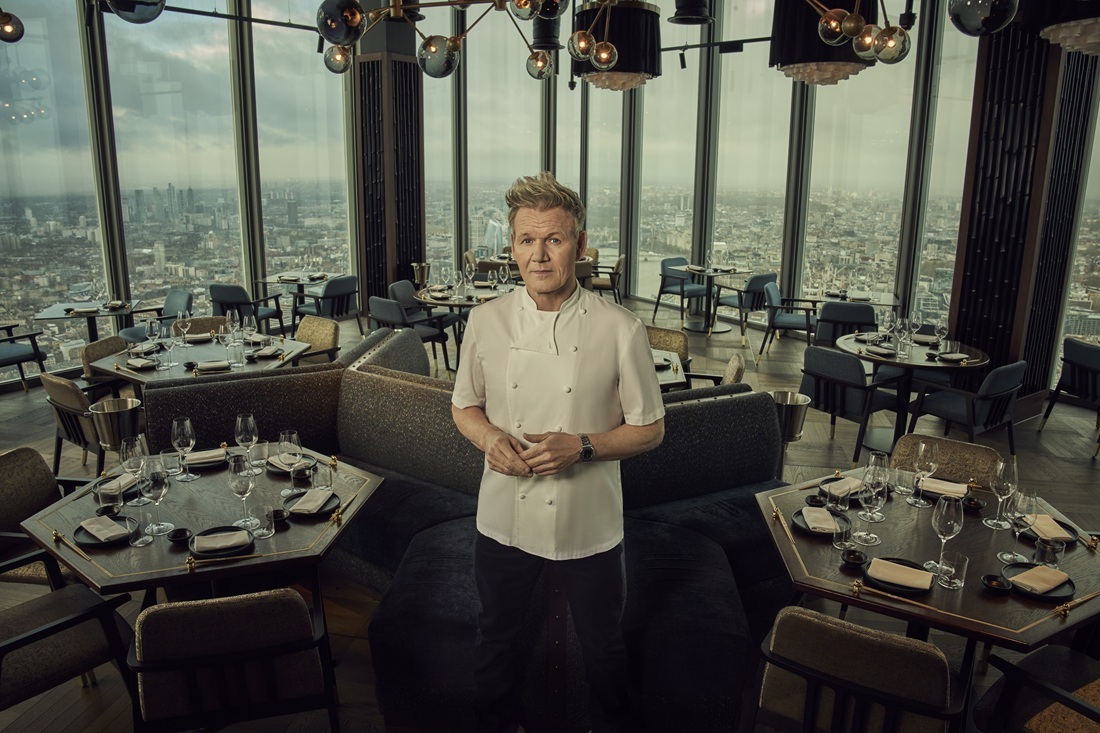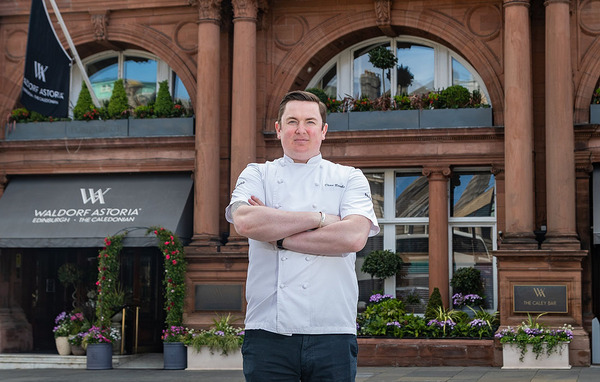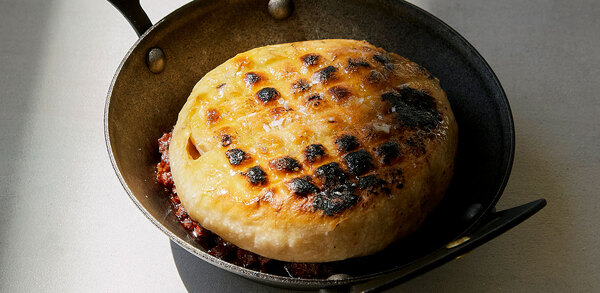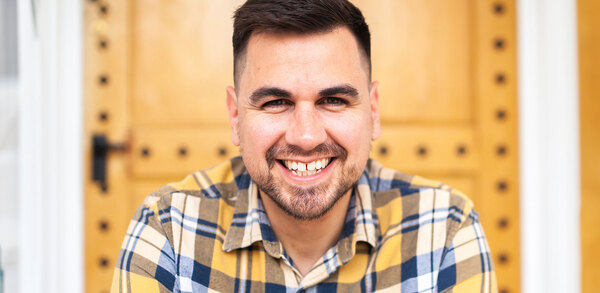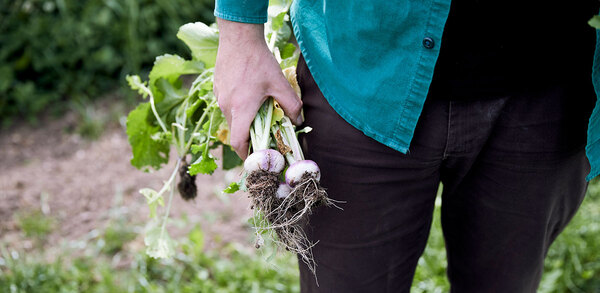Sweet charity
A sustainable business is a socially responsible one, involved in its community and seen to care about its customers, and that can also give the feelgood factor to your whole business
Running a sustainable hospitality business is not just about switching off the lights when you leave a room or asking guests to do the same. Nor does simply buying diver-caught scallops or using recyclable packaging qualify a hotel or restaurant as sustainable.
âWhen you talk about being âgreenâ or âsustainableâ, people donât automatically home in on the fact that youâre talking about something other than the environment,â he says. âBeing sustainable isnât just about looking after the planet; itâs about being considerate and responsible to everybody, and social responsibility plays a huge part in that.â
The Sustainable Restaurant Association (SRA), which aims to help its restaurant members become global leaders in sustainability, helps restaurants source food more sustainably and manage resources more efficiently and also offers advice on how its members can work more closely with their community.
âRestaurants, pubs and hotels have a unique place in any community as places where people come together. This gives businesses a unique opportunity to engage with organisations and individuals in their locality on many levels, be it by providing invaluable food and cookery education to schoolchildren or supporting charities,â says the organisationâs managing director Mark Linehan.
And itâs not just about do-gooding; getting involved with the local community can result in real business benefits. âMany SRA members have found that the close ties they have forged with their local communities have the added benefit of convincing diners they are places in which they would like to eat,â Linehan says.
Indeed, Firrell emphasises, it would all be a bit pointless if businesses werenât making money. âFor a business to be sustainable, itâs also got to be viable,â he stresses. âAt the end of the day, people are in business to earn a living.â
JUST GIVING
At Battlesteads hotel and restaurant in Northumberland, the team provide around 3,000 meals a year to the local school, organise weekly meals for pensioners and put on an annual beer festival from which all proceeds go to charity, among many other things.
For owner Richard Slade, this is the responsibility of a rural business. âItâs a serious effort to be part of the community,â he says. âIf we expect the people who live in the village and area to support us, we must support the things that mean something to them. Itâs very important for rural businesses to play their role; rural communities have enough stresses and we must be part of that attempt to make living in a village community worthwhile.â
Of course, there is payback, too. âIf grown-up children of seniors in the area visit and take their elderly relatives out for a meal, they come to us. We certainly pick up an increased level of trade through that, which is very rewarding. Itâs a matter of give and take; you donât get anything back until you give it out.â
Over the last two years and two months, Martin Young, proprietor of the Mains of Scotstown Inn in Aberdeen, has raised over £280,000 for various causes through an organisation called Our Community Project, which he founded with another business owner, Kevin Munro. He has also seen a huge boost to his business.
âIn 2011 we saw an increase of 2.8% over our normal 4% organic growth, which was a £27,000 increase. In 2012, we saw an increase of 4.1% over organic growth, which added up to £42,300. And in 2013, we had an increase of 3.9% over organic growth â" £ 41,800.â
âOur Community Project has put on everything from pancake-making to firework displays and raised money for Clan Cancer Support, the Bridge of Don Trust and others, as well as providing football strips for local teams and even climbing a mountain or two.
âYou donât have to be Wetherspoons to raise good money for charity. Any money is good money for charity. And itâs great for your pub, your punters and staff â" it brings communities together. For me, itâs not good enough to have a charity tin on the bar â" you have to be seen to be doing more within your community and working on whatâs right.â
For Sam Harrison, owner of Samâs Brasserie and Bar in Chiswick and Harrisonâs in Balham, London, community engagement can also result in more motivated staff. âBoth my teams live very local to the restaurants and so very much like to be involved with the community,â he says. âOften we may be doing an event at a school their children attend or they have a personal connection. I think it is a great motivational tool and makes them feel good about themselves and the business.â
STEALTH MARKETING
Getting creative with community engagement initiatives, as Carluccioâs discovered when the group joined the Good Food Talks app, can also open up thousands of potential new customers. The new app allows visually impaired people (a market of 1.5 million in the UK) quick and easy access to restaurant menus.
But getting involved in the local community doesnât have to mean advanced technology â" especially at first. âI would suggest just talking to people,â Harrison advises. âFind out what local events are going on and how you might be able to help and get involved. Talk to your regular customers and your team and see what local events or causes are important to them.â
Further down the line, help is also at hand from organisations such as the SRA and Considerate Hoteliers. âA lot of our work is encouraging networking among members,â Firrell says. âOften, hearing what other members are doing is the best inspiration.
âWe are always extolling the virtues of supporting your local community. And that comes back to you in other ways â" by those people in the community actually using your facilities. It isnât a competition. Hotels are more than happy to share information about what theyâre doing to help.â
Â
A community effort in local promotion
Colin Fell and his wife Hari moved to a small village in the Forest of Dean to run Tudor Farmhouse Hotel & Restaurant (bought from Hariâs parents in 2007) because they loved its remoteness and the rural lifestyle it offers. Since then, all theyâve wanted to do is let other people know about it.
âOur aim at Tudor Farmhouse is to create a successful hotel and restaurant business, bringing people to the area to showcase all that this hidden gem has to offer,â Colin says.
Working with the local community has been absolutely key. âEngaging with local community groups, businesses and associations has meant that collectively we can all do more to promote the Forest of Dean, raise its profile and make it even better than it already is,â he says.
âTourism is a major economic and employment provider to the Forest of Dean, and by working together, the local community as a whole benefits.â
But it hasnât been easy, and nor will it be for any business owner looking to get truly involved in the community, he believes: âBecoming part of and giving something back to the community should be seen as a long-term strategy, and not a quick-fix win in terms of business. Itâs all about learning what the needs of your local area are and finding a way that you can fit in and do something to help.â
Â
Getting in on the curriculum at the Green House Hotel
At the Green House hotel in Bournemouth, which was Considerate Hotel of the Year in 2013, sustainability, fair trade and local involvement are at the very core of the business â" whether this is by helping schools at career days or partnering with sports clubs to raise awareness about protecting the environment.
And for general manager Olivia OâSullivan, initiatives like these are not only extremely fulfilling for the hotelâs staff, they also attract customers. âSustainability is featured on most school curriculums, so schools and universities tend to call on us for advice or for career days. I think they value our time spent with the students and are very loyal to the business in return,â she says.
âPeople have lots of choice these days, so you need to go one step further to stay ahead and to gain peopleâs trust. The community we are involved with are very loyal as these days not many people give their time away for free. What you give, you get back.â
The staff love working with the community, too. âOur chef has spent an afternoon at Bournemouth and Poole College working with students to recreate one of his dishes, and he mentions this as one of his highlights of the past year,â OâSullivan says. âThe team have all been involved with different charities. It bonds the team and generally gives them a positive view on life as well as a sense of humility.â
Â
Serving up charity contributions at the Cookbook Café
At the Cookbook Café at InterContinental London Park Lane, sustainability is squarely on the menu. Not only do the team use local produce and support local businesses, they also partner with local causes and charities.
âLast year we partnered with Edible Playgrounds, which provides food-growing and learning spaces in the grounds of inner-city schools,â says InterContinental London area general manager Alvaro Rey.
The caféâs executive chef Paul Bates created a series of twice-monthly seasonal classes for kids aged five to eight that were educational, interactive and, most important of all, fun.
âIn partnership with WellChild, members of staff get involved in many fundraising activities too, including cleaning and rebuilding the garden of a sick childâs home,â Rey adds. âWe also support London homeless charity the Passage with clothes donations, job interview advice, serving breakfasts to members and providing supplies and service for their summer and Christmas parties.â
For Rey, there is a genuine business case for engaging with the community. âThis runs through financial savings, associate retention and higher profits,â he says. âGuests connect more with the hotel through our initiatives and are more likely to be loyal to us because of it. It creates an interesting story and a way for visitors to feel more immersed in the local community. Locals are more likely to patronise an establishment that supports the area.â




